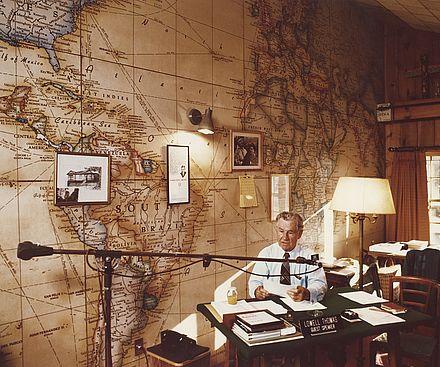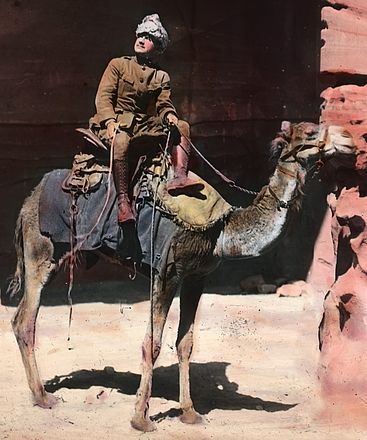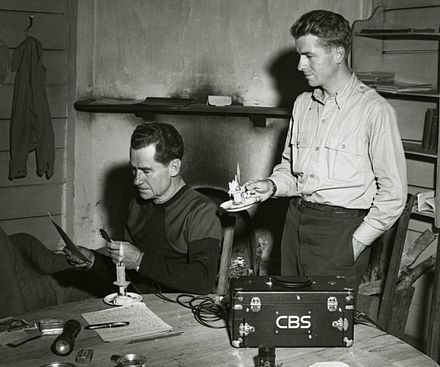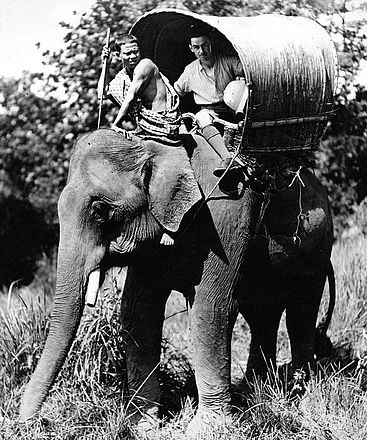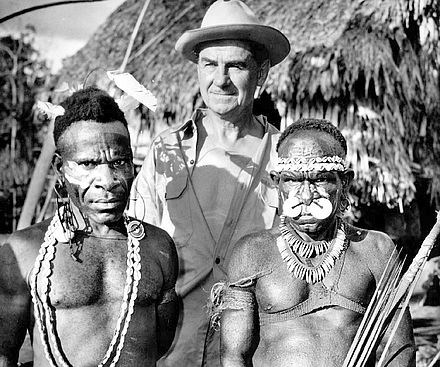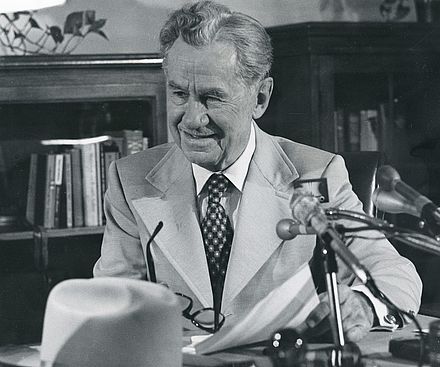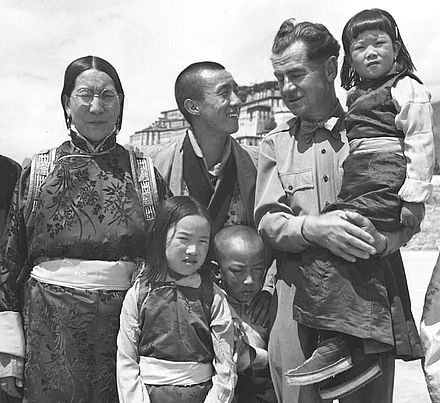Media Tycoon
Lowell Thomas was an accomplished businessman as well as a journalist. Unlike other top post-World War II American broadcast journalists — Edward R. Murrow, Walter Cronkite, David Brinkley — Thomas was never a network employee. Instead, he remained an independent contractor who had his own sponsors, bought time on the networks for his programs and retained ownership of his material. Thomas made and spent several fortunes before establishing himself as a major media tycoon with the formation in 1947 of what would become a group of broadcast stations called Capital Cities. Capital Cities eventually grew large enough to purchase the ABC network in 1985.
Thomas’ remarkably intrepid travels included an overland trip to Tibet in 1949 with his son Lowell, Jr., along as cameraman. They were the first, and last, invited western guests of the ancient Tibetan government, and their remote, battery-powered broadcasts were carried on CBS — another first. Thomas produced surround-screen travel adventures — “Seven Wonders” and “Search for Paradise”are examples — for his own film production company, Cinerama Productions, and they were shown in his own Cinerama theaters. From 1955 through 1958, Thomas also produced and starred in the “High Adventure” series on CBS television, which took him from Timbuktu to Pauga Pauga.
A 1957 cover story of Newsweek magazine proclaimed: “Thomas has never had a commercial flop. He communicates a kind of gosh-almighty feeling that the world is his oyster, it contains many nicely turned pearls, and they can be shared by anyone who cares to read, watch or hear Lowell Thomas.”
For a man who began his career traveling on horseback, steamships and trains, the jet airplane offered Thomas the means to act on all his travel impulses. In 1963 during one eight-week period he flew to Australia, New Guinea, India, Iran and Europe; he crossed over the South Pole twice from Tahiti to New Zealand and on to Kabul, Samarkand and Moscow. He backtracked to Europe, then down to South Africa, across the Antarctic to Australia, and on to London to catch a jet to New York and Detroit, where he had three speaking engagements — during which he collapsed.
“I had crossed all 24 time zones at least twice and blithely gone on with my radio and television routine while managing some writing, speaking engagements and even some ski trips: My abused biological clock simply went haywire and I woke up in the hospital.”
—Lowell Thomas
Audio
Clip 4
Thomas describes how he happened to be in Berlin.
As he turned 85 in 1976, Thomas announced that after 46 years and 16,800 broadcasts stretching over 2,400 weeks, he was ending his daily scheduled radio show “Lowell Thomas and the News.” But he was hardly retired; he was writing a two-volume autobiography, producing a “Lowell Thomas Remembers” series for PBS and the BBC, and chairing Capital Cities.
On August, 29, 1981, Thomas worked on a new documentary in the morning and presided over a Capital Cities board meeting in the afternoon before dying that night in his sleep in Pawling, New York. He was 89.
Lowell Thomas “loved the face of the earth,” as CBS commentator Eric Sevareid worded it in his eulogy. And Thomas was indeed always ready to set off for a new, relatively unknown part of the planet. This wanderlust helped propel him toward the Middle East, Akaba and T.E. Lawrence.
But Thomas was also a master storyteller. “He loved stories about people,” Sevareid wrote. Storytelling is, of course, basic to journalism. It has a complex relationship with history and truth and it has the power to turn people into legends.
“He loved the face of the earth. He loved stories about people.”
—Eric Sevareid


